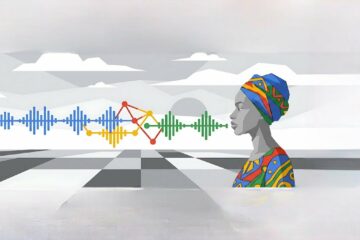
Sixty years ago, the Dick Tracy comic strip featured a walkie-talkie watch that Detective Tracy used to communicate with his colleagues. It was an uncanny anticipation of our smartphones and watches. The 1960s Jetsons television show predicted Skype, flat-screen TVs, smart watches and personal aircraft.
Even though cartoons foresaw some things, technological progress has far outstripped predictions in many areas. The convenient size and affordability of computers are nothing short of miraculous. The computer’s ability to facilitate word processing, mathematical computing, accounting, complex modeling, information storage and retrieval is nearly overwhelming. Ditto for the computer’s partner — the internet, which has become the basis of communications and a boundless repository of information. Add to this the permutations of the personal computer in smartphones, smart watches, tablets and smart appliances, etc., as well as the internet, and we are witnessing revolutionary and comprehensive technological change.
Surprisingly, other areas of our lives have not changed in any fundamental way.
Air travel — In the last 50 years, the nature of commercial flight has changed only incrementally. Supersonic flight, which reduced flying times by 60 percent, had the potential to disrupt traditional air travel, but it never caught on because of its high price and because its sonic booms limited it to only transoceanic flights. And the Jetsons’ personal “airmobiles” remain things of a far distant future.
Dental protection — It’s surprising no one has developed a permanent affordable and widely available dental shield or other process to protect teeth from decay. This would save billions of dollars, untold dental-related disease and mounds of pain and misery.
Home construction — One of the most baffling things is that we have not developed cheaper, quicker ways to build homes. Society would benefit enormously. As with air travel, there have been some innovations, but no game-changer to render expensive, slow “stick and brick” construction obsolete. We have heard about homes being built of walls of bales of straw, steel and lightweight concrete, but nothing much has come of them. Modular or pre-manufactured housing has been touted from time to time, but has not been widely used.
Spinal cord injuries — We have made incredible advances in medical science — pharmaceuticals, therapies to kill cancers, robotic surgery, minimally invasive surgical procedures, scanning and imaging the interior of the human body in minute degree. Yet we cannot rejoin, repair or replace severed spinal cords and other nerves. Hence, millions of people live with paralysis and the accompanying immobility, inconvenience and interference with life’s normal functions. I have long prayed for this problem to be solved.
Comment on this story
Addiction — A 2011 scientific meta-study estimated that almost half of U.S. adults suffer from symptoms of one or more of 11 major addictions. The National Council on Alcoholism and Drug Dependency states, “Alcohol and drugs are implicated in an estimated 80% of offenses leading to incarceration in the United States. … Our nation’s prison population has exploded beyond capacity and most inmates are in prison, in large part, because of substance abuse:
- “80 percent of offenders abuse drugs or alcohol.
- “Nearly 50 percent of jail and prison inmates are clinically addicted.
- “Approximately 60 percent of individuals arrested for most types of crimes test positive for illegal drugs at arrest.”
Science has developed some compounds that are helpful in dealing with drug addiction. How wonderful it would be if we could see medicines developed to help overcome addictive behavior.
In addition to the subjects discussed above, we need serious research on
- Reversing obesity in a way that the average person can use without expensive programs, draconian self-control or surgery.
- Stopping the cycle of inter-generational poverty.
- Raising the Third World out of poverty and subsistence farming and susceptibility to preventable disease.
Currently, entrepreneurs seem to be obsessed with innovations in computers, software and the internet. Indeed, much can be done in these areas to make our lives more productive and enjoyable. But how wonderful it would be if a mere fraction of the incredible brainpower and phenomenal resources now devoted to developing computer technology could be redirected to solving the gaping needs in our society, which have not enjoyed such remarkable advances in technology.
[Source:-Desert Union]




